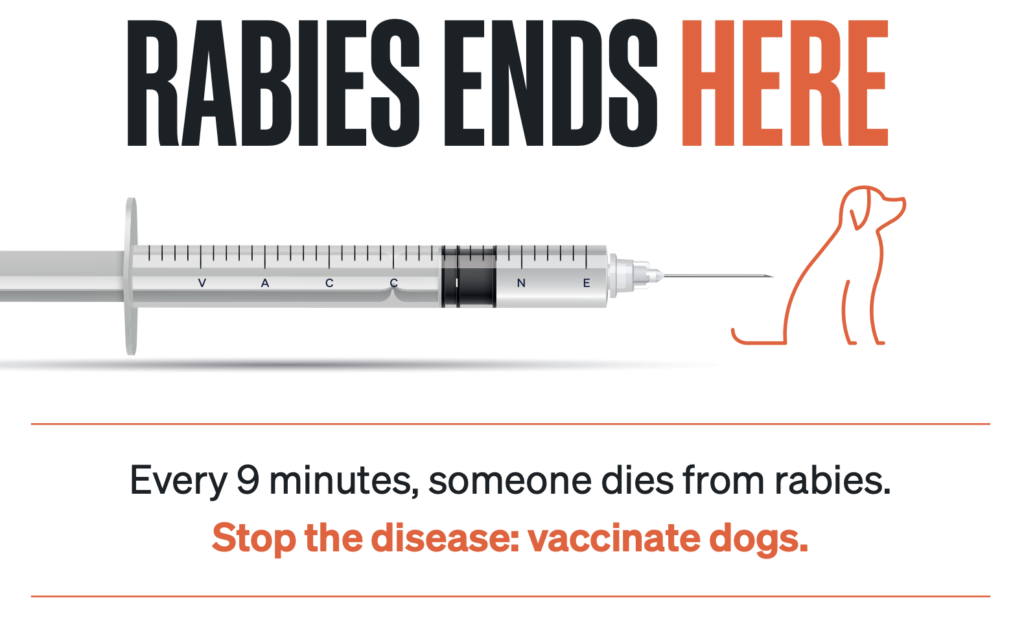Trends in the use of veterinary vaccines: the case of rabies and PPR

Veterinary vaccines, when used in conjunction with other health measures, have proven to be powerful tools in the prevention, control, and even the elimination of animal diseases. PPR and dog-mediated rabies have been the focus of vaccination efforts worldwide. While most affected countries implement official vaccination to control these diseases, challenges such as improper use and poor quality of vaccines remain. The Global Animal Health Situation Report presented at WOAH’s 90th General Session describes the current situation and provides an analysis of these trends, based on the reporting of official vaccination by Members.
Implementing PPR vaccination in remote pastoral areas
PPR is a viral livestock disease that can decimate entire herds of sheep and goats. Today, it still threatens 80% of the world’s sheep and goat population. As a result, it puts at risk the livelihoods and food security of some 300 million rural families worldwide who rely on small ruminant production. Eradicating PPR through vaccination and other appropriate measures, would not only ensure animal health and welfare, but would also improve the living conditions farmers, many of whom are women.
From 2005 to 2022, an annual average of 70% of Members affected by PPR reported official vaccination against the disease. During the period 2005 – 2022, a stable trend was observed with a peak in 2015 (82% of affected Members).
Through the PRAPS project (Sahel Regional Project Supporting Pastoralism), six countries of the Sahel region, including Burkina Faso, Chad, Mali, Mauritania, Niger and Senegal, have been involved in an ambitious initiative to control PPR in the region. Notable achievements in PPR vaccination have been observed. Between 2016 and 2022, a staggering 188 million doses of PPR vaccine were distributed to the PRAPS countries and in 2022 alone, 32.2 million doses were delivered. The use of WOAH’s PPR vaccine bank has been instrumental to support the supply of large quantities of quality vaccines.
While significant progress has been made in PPR vaccination in the Sahel region, a number of challenges remain. Identifying small ruminants, ensuring the effectiveness of vaccinations, maintaining vaccine quality control, and addressing human resources constraints, including training and staffing shortages, pose significant hurdles to fully controlling the spread of PPR and achieving long-term control goals in the Sahel region. Lessons learnt are taken into account in the next phases of the project.
By addressing these challenges head-on, we can strive towards the global eradication of PPR, ensuring the protection of small ruminant populations, the livelihoods of farmers and the future of pastoralism.
Tackling rabies at the animal source
Besides livestock diseases, zoonoses are also on the radar for vaccination campaigns. Rabies, a deadly disease with a fatality rate of nearly 100% in both humans and animals, continues to pose a global threat, claiming the lives of approximately 59,000 people each year. Because dogs are the primary carriers of this devastating zoonotic disease, effective control and elimination of rabies requires tackling its root cause in animals. Dog-mediated rabies has therefore been a major focus of vaccination campaigns. From 2005 to 2022, an average of 78% of WOAH Members affected by rabies reported official vaccination of dogs against rabies. However, there has been a gradual decline in the percentage of countries implementing rabies control measures, dropping from 85% to 62% during the period.

To support the goal of zero human deaths from dog-mediated rabies and to keep track of the use of veterinary vaccines, the United Against Rabies Forum, hosted by WOAH on the behalf of the Tripartite, has developed a comprehensive document titled ‘Minimal Data Elements’, which serves as a vital resource for monitoring progress towards the ambitious Zero by 30 Global Strategic Plan. This document notably offers essential data elements for countries to collect and diligently submit to the World Health Organization (WHO) and WOAH. By harmonising data practices, countries can effectively contribute to the global fight against rabies and track advancements in vaccination coverage.
Boosting vaccination trends to better control animal diseases
WOAH has developed global strategies that have encouraged countries to implement vaccination programmes against PPR and dog-mediated rabies. Through these initiatives and strategic partnerships, WOAH provides technical expertise and guidance to its Members on the implementation of effective vaccination strategies. By disseminating knowledge, facilitating information sharing, and supporting countries in accessing vaccines through initiatives such as vaccine banks, WOAH has significantly contributed to improving disease control efforts worldwide. The implementation of disease global strategies also fosters collaboration among countries, encouraging them to tackle animal diseases collectively and safeguard both animal and human health.
It is imperative to take action together to prevent the spread of transboundary animal diseases and curb their effects on livelihoods and economies. Let’s work together to rid the world of dog-mediated rabies and PPR.
